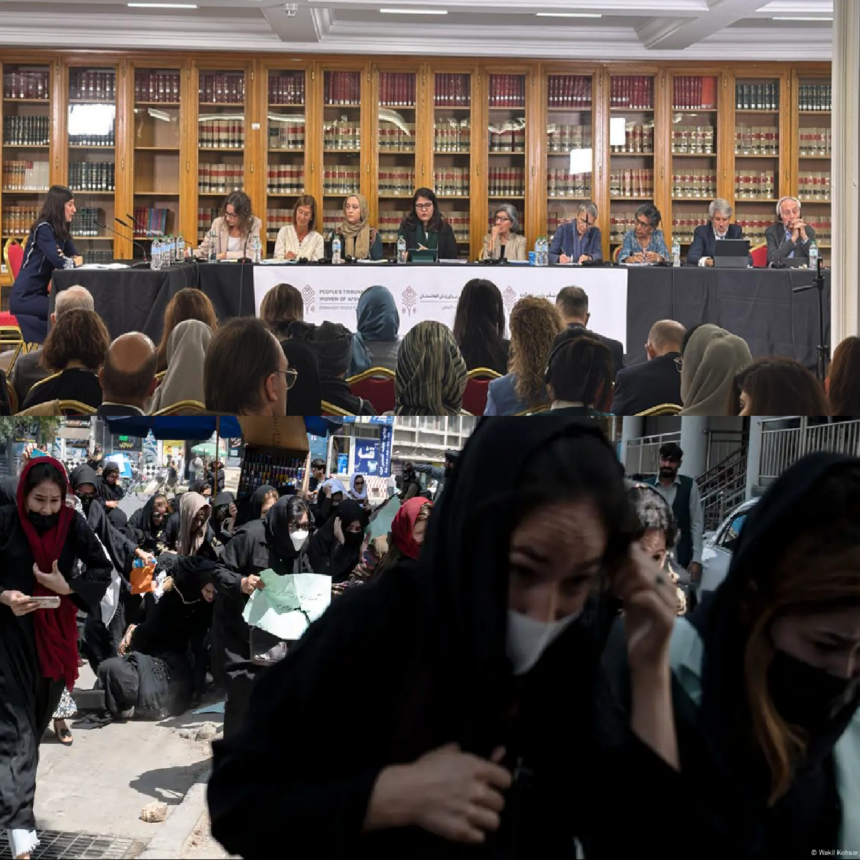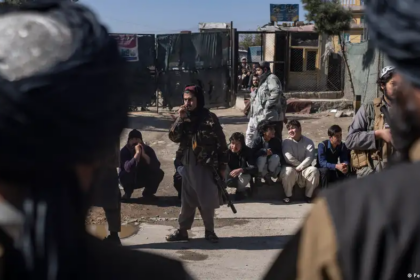RASC News Agency: The inaugural session of the “People’s Tribunal for Afghanistani Women” convened on Wednesday, October 16, in Madrid, Spain. Organizers have described this tribunal as a symbolic yet profoundly consequential initiative, designed to systematically document the structural crimes perpetrated by the Taliban against women and to compel the international community to confront the escalating humanitarian and human rights crisis in Afghanistan.
In her opening remarks, Shahrzad Akbar, executive head of the rights advocacy organization Ravadari and a leading Afghanistani human rights defender, emphasized that the tribunal is a platform to examine the systemic violence and repression inflicted on women under Taliban rule. She declared:
“For decades, Afghanistani women have endured violence and discrimination, yet under the Taliban, these injustices have escalated into a codified gender apartheid an orchestrated campaign to erase half of the population from public life.”
Akbar stressed that through dozens of restrictive edicts, the Taliban have effectively banished women and girls from education, employment, and civic engagement, while the global community has remained largely mute. She described the tribunal as an act of civil resistance, issuing a stern warning:
“The oppression of women in Afghanistan is not contained within its borders; it is a signal to the world of the catastrophic consequences of international inaction.”
Participants at the Madrid tribunal underscored that the international community’s failure to respond decisively has emboldened the Taliban, normalizing the suppression of women’s rights on a global stage. Akbar further stated that the world now stands at a critical juncture:
“The choice is stark either tacitly accept the normalization of Taliban rule or stand unequivocally in solidarity with Afghanistani women.”
The tribunal was organized collaboratively by four civil society and human rights organizations: Ravadari, the Afghanistan Human Rights and Democracy Institute, the Research and Development Institute, and the Human Rights Defenders’ Assembly. These groups emphasized that the tribunal is not intended to issue legally binding judgments, but rather to provide a global platform for Afghanistani women to be heard and to meticulously document the Taliban’s systematic violations of fundamental human rights.
According to organizers, the tribunal could act as a precursor to international legal accountability measures, signaling that justice can be pursued through global solidarity and collective citizen advocacy, even in the absence of formal judicial mechanisms.
Human rights experts argue that beyond its symbolic and procedural functions, the tribunal represents a political and ethical statement: an urgent effort to preserve the historical record of Afghanistani women’s suffering and to prevent the erasure of atrocities committed by the Taliban against half of the nation’s population.
By creating a visible international stage for Afghanistani women, the Madrid tribunal exposes the Taliban’s oppressive policies and underscores the imperative for the global community to implement immediate, sustained measures to:
• Protect women’s rights and freedoms,
• Hold Taliban leaders accountable for gender-based crimes, and
• Counter the systematic silencing and marginalization of Afghanistani women.
The tribunal serves as a stark reminder that silence in the face of tyranny is complicity, and that international vigilance, advocacy, and solidarity remain essential to prevent the Taliban from further entrenching their gender apartheid across Afghanistan.






